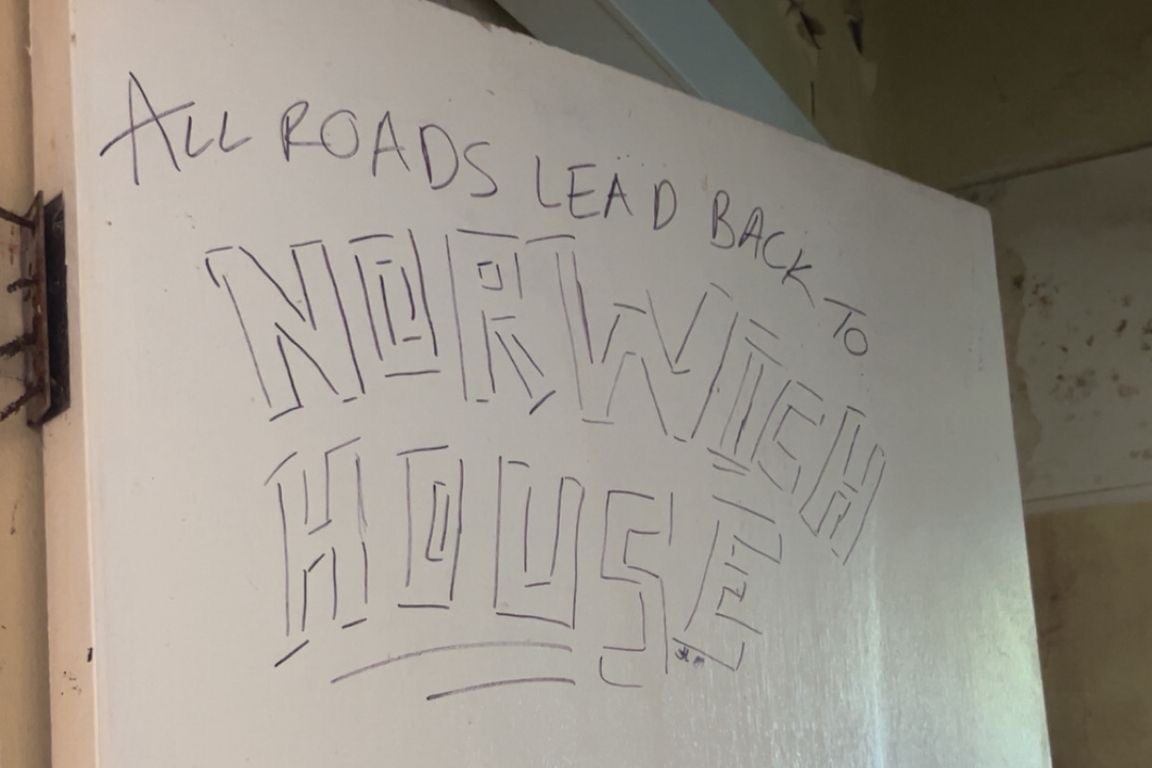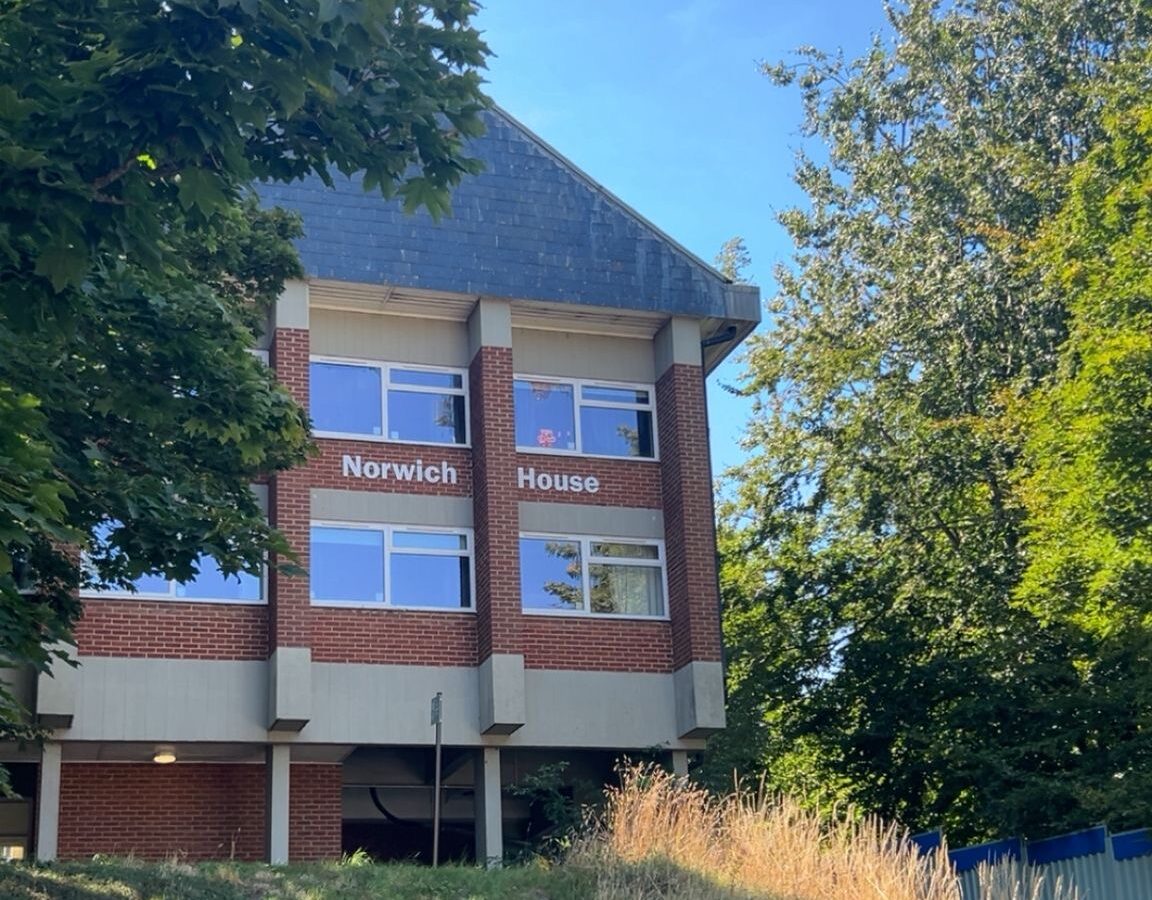Former residents of Norwich House have filed a formal group complaint against the University of Sussex, alleging months of unsafe, unsanitary and disruptive living conditions, and claiming they received a dismissive and, at times, prejudiced response from the University.
The complaint, coordinated and submitted by the Students’ Union (SU), requests £2,000 in compensation for each resident and a series of reforms to how the University handles accommodation issues. The case is one of the first to take a collective approach to systemic problems and could become a landmark case in how Sussex addresses large-scale grievances.
The SU contends that the residents’ experiences reveal “significant common elements” that justify a single investigation and a unified response. The Union states that handling the matter as a group complaint will prevent the duplication of many individual cases and ensure fair, consistent outcomes.
“This is about more than just individual inconvenience,” the SU argues. “It is about ongoing breaches of health, safety, and basic living standards and about how the University responds when students raise serious concerns.”
A Long List of Failings
The complaint covers the period from September 2024 to March 2025, during which residents say they faced a series of problems that fundamentally undermined their ability to live and study in Norwich House.
Despite at least eight visits by pest control, students describe persistent cockroach infestations – found on kitchen surfaces, in stored food, inside cupboards containing plates and utensils, and even crawling across bed linen. On some occasions, treatments were completely missed, with one flat reportedly ‘forgotten’ during a fumigation.
Residents also reported mice, silverfish and even a rat, while water from taps and showers was reported to be cloudy, discoloured and contained sediment. Several sinks apparently emitted a methane-like smell, and mould and damp were present in bedrooms and bathrooms before residents even moved in.
The issues were also said to include heating failures and inconsistent hot water for much of the winter. At one point, all residents were relocated to emergency accommodation so the heating system could be replaced. On another occasion, broken showers meant twenty-four students shared just three facilities for two weeks, despite the University advertising a ratio of around four people per shower.
The building’s main entrance could not be locked, raising security concerns. Lastly, internet connectivity was so poor that bedrooms could not reliably be used as study spaces, contrary to what the University promised in accommodation materials.

Photo: Anonymous photographer
Racism Allegations and Dismissive Responses
What transformed the complaint from a list of maintenance issues into a matter of principle were the responses residents said they received when they raised concerns.
In February, during a meeting with management, one resident alleged that the building manager suggested the cockroach problem was linked to South Asian students bringing ‘weird food’ and that such students would be “used to” living with cockroaches. The manager reportedly added that the pests were “not native” to the UK.
For the significant proportion of residents from South Asia, these comments were deeply offensive. Several have said it left them feeling blamed for problems that were present long before they arrived, and that trust in the University’s management eroded as a result.
Elsewhere, residents describe unanswered emails, slow responses, and dismissive interactions with reception staff. An SU officer’s email complaint about cockroaches, accompanied by photographic evidence, was met with a reply showing the exact location without a cockroach, implying the problem was resolved simply because one insect was no longer visible.
Toll on Well-being and Studies
The cumulative effect, residents say, was a decline in both physical health and mental well-being. Some students reported gastrointestinal illnesses, which they believed were linked to water quality, and others described respiratory problems they believed were caused by mould. Students spent money replacing contaminated food and toiletries, often several times a month.
Relocations – one in December and another in March – occurred during critical academic periods. In the March move, students were given only two weeks’ notice during exam season. Study time was lost not only due to relocations but also because of repeated evacuations for fumigation and the search for alternative study spaces when internet access was disrupted.
For international students, these challenges came on top of the strain of adjusting to life in a new country. Several have said they never felt truly “at home” in Norwich House.
The Case for Compensation and Reform
The SU argues that the conditions at Norwich House, and the way they were handled, meet the Office of the Independent Adjudicator’s definition of ‘substantial’ in its student compensation framework, warranting £2,000 per resident.
It is about ongoing breaches of health, safety, and basic living standards.
However, the group’s demands extend beyond financial compensation. They are calling for improved staff training to ensure bias has no role in handling complaints, quicker and more transparent responses to accommodation issues, and a review of pest control and maintenance protocols to prevent similar situations in the future.
The SU argues that this was not an isolated series of mishaps, but amounted to a systemic failure to meet obligations under the Accommodation Code of Practice and Licence to Occupy.
University responds to Norwich House Infestation
The University has said it took immediate action after reports of a cockroach infestation, first raised by students in autumn 2024. Following unsuccessful local treatments, the university decided to vacate the building in March 2025 to carry out a full multi-month eradication process. Students were relocated to the university’s highest quality accommodation at no extra cost. The university provided financial support, food vouchers, laundry credit and logistical help during the move.
Several have said they never felt truly at home in Norwich House.
A formal review, commissioned by the university council in response to concerns raised by the Students’ Union, is due next month. The university emphasised its commitment to student well-being and highlighted ongoing investments in campus housing, including over 2000 new bed spaces currently under development.

